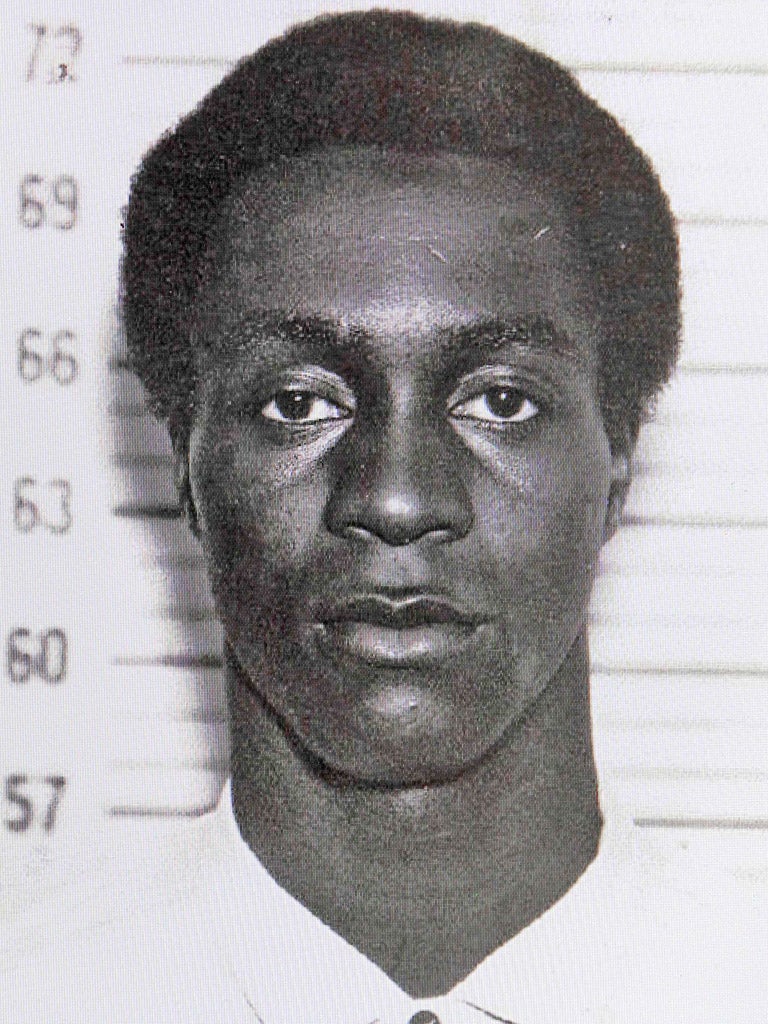Hijacker is captured after 41 years on the run
Black Liberation Army member who escaped to Africa is finally tracked down to a seaside village in Portugal. By Guy Adams

It must have seemed like the perfect crime. On 31 July, 1972, an escaped prisoner called George Wright put on a dog collar, hid a revolver inside a hollowed-out Bible, and boarded Delta flight 841 from Detroit to Miami. Looking to all the world like a priest travelling south on church business, he was waved swiftly on to the plane.
Three hours later, as the DC-8 prepared for its descent, Wright and four accomplices leapt from their seats. This was a hijack, courtesy of the militant Black Liberation Army, they declared. FBI agents were instructed to deliver $1m, in cash, to the aeroplane. Then the group flew to Algeria and disappeared.
It was the height of the Cold War, and the north-African country, with its socialist government, was a favourite hiding place for left-leaning dissidents and militants. Wright and his colleagues were able to vanish. Some of them turned up in Paris, four years later, where they were arrested and imprisoned. But for decades, not a peep was heard from Wright.
Until now. On Monday, Portuguese police descended on an idyllic seaside hamlet called Almocageme, 28 miles west of Lisbon. There, inside a small whitewashed cottage, justice finally caught up with a man who had been on the run for more than 40 years.
At 68, Wright was enjoying the good life. He was married to Maria do Rosario Valente, the 55-year-old daughter of a retired army officer, and had two grown-up children, Marco and Sara.
Locals said he'd lived in Almocageme for at least 20 years. He was fluent in Portuguese, and had a friendly (if mysterious) demeanour. No one knows if his wife, who worked as a translator, knew his true identity. She refused to comment to reporters.
Wright, who is currently in custody in Lisbon, is expected to fight extradition to the US. If he loses that battle, he may well spend the rest of his life behind bars.
His story has more twists and turns than a well-thumbed crime thriller. It begins in 1962 when Wright, then 19, and three accomplices embarked on a string of violent robberies in his native New Jersey. One of them ended tragically: on 23 November, Walter Patterson, a decorated World War Two veteran and father of two, was shot and killed at the Esso petrol station he ran in the small town of Wall.
Wright was arrested, pleaded guilty to avoid the death penalty, and was sentenced to 15-30 years. But in 1970, he masterminded an ingenious escape from Bayside State Prison in Leesburg, reportedly stealing the warden's car, driving it casually out of the gates, and then making a clean getaway.
The 1972 hijacking was carried out by Wright and four other members of the "Black Power" movement. The group forced the pilot to land in Miami and ordered FBI agents to deliver $1m in cash to the plane. It was the largest ransom ever paid to a group of airline hijackers. During the "drop", the agents were instructed to wear nothing except for skin-hugging swimming trunks, to ensure they were not armed.
The hijackers instructed the pilot to fly to Boston, where they refuelled and were joined by an international navigator, who was also wearing swimming briefs. Then they took off again and flew to Algiers.
It wasn't all plain sailing, though. The country's socialist president, Houari Boumédienne, severely restricted their movements. He also confiscated the $1m, and returned it to the US, along with the DC-8. Frustrated, the group quietly made their way to Paris, where several members were arrested in 1976. But Wright remained at large.
His arrest is the result of an investigation by the New York/New Jersey Fugitive Task Force, which was formed in 2002 and decided to reopen the case. They reinterviewed Wright's victims, went over paperwork from the 1970s, and attempted to see if he'd had any recent contact with his family in the US. The address in Almocageme was one of several potential leads that thrown up during those inquiries.
Last week, they finally realised they had their man: Portuguese authorities looked up Wright on their national ID register, and his fingerprints matched those on US records.
After a short surveillance operation, local police surrounded his house and knocked on the door. The suspect came quietly, his fate now in the hands of the Portuguese courts.
Join our commenting forum
Join thought-provoking conversations, follow other Independent readers and see their replies
123Comments